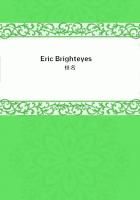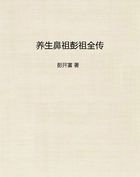A New Ground-Rent Theory. " This is the only point of view from which Marx there looks upon the third social letter. The Rodbertian theory of surplus-value in general is dismissed with the ironical remark. "Mr. Rodbertus first analyses the slate of affairs in a country where property in land and property in capital are not separated and then arrives at the important conclusion that rent (by which he means the entire surplus-value) is only equal to the unpaid labour or to the quantity of products in which this labour is expressed."Capital istic man has been producing surplus-value for several hundred years and has gradually arrived at the point of pondering over its origin. The view first propounded grew directly out of commercial practice:
surplus-value arises out of an addition to the value of the product. This idea was current among the mercantilists. But James Steuart already realised that in that case the one would necessarily lose what the other would gain.
Nevertheless, this view persisted for a long time afterwards, especially among the Socialists. But it was thrust out of classical science by Adam Smith.
He says in the Wealth of Nations , Vol. I, Ch. VI: "As soon as stock has accumulated in the hands of particular persons, some of them will naturally employ it in setting to work industrious people, whom they will supply with materials and subsistence, in order to make a profit by the sale of their work, or by what their labour adds to the value of the materials .... The value which the workmen add to the materials , therefore, resolves itself in this case into two parts , of which the one pays their wages , the other the profits of their employer upon the whole stock of materials and wages which he advanced. And a little further on he says: "As soon as the land of ally country has all become private property, the landlords, like all other men, love to reap where they never sowed, and demand a rent even for its natural produce...." The labourer "must give up to the landlord a portion of what his labour either collects or produces. This portion, or, what comes to the same thing, the price of this portion, constitutes the rent of land ."Marx comments on this passage in the above-named manuscript Zur Kritik , etc., p. 253:
"Thus Adam Smith conceives surplus-value -- that is, surplus-labour, the excess of labour performed and realised in the commodity over and above the paid labour, the labour which has received its equivalent in the wages -- as the general category , of which profit in the strict sense and rent of land are merely branches."Adam Smith says furthermore (Vol. I, Ch. VIII): "As soon as land becomes private property, the landlord demands a share of almost all the produce which the labourer can either raise or collect from it. His rent makes the first deduction from the produce of the labour which is employed upon land . It seldom happens that the person who tills the ground has the wherewithal to maintain himself till he reaps the harvest. His maintenance is generally advanced to him from the stock of a master, the farmer who employs him, and who would have no interest to employ him, unless he was to share in the produce of his labour , or unless his stock was to be replaced to him with a profit. This profit makes a second deduction from the produce of the labour which is employed upon land. The produce of almost all other labour is liable to the like deduction of profit. In all arts and manufactures the greater part of the workmen stand in need of a master to advance them the materials of their work, and their wages and maintenance till it be completed. He shares in the produce of their labour , or in the value which it adds to the materials upon which it is bestowed; and in this share consists his profit."Marx's comment (Manuscript, p. 256): "Here therefore Adam Smith in plain terms describes rent and profit on capital as mere deductions from the workman's product or the value of his product, which is equal to the quantity of labour added by him to the material. This deduction however, as Adam Smith has himself previously explained, can only consist of that part of the labour which the workman adds to the materials, over and above the quantity of labour which only pays his wages, or which only provides an equivalent for his wages; that is, the surplus-labour, the unpaid part of his labour."Thus even Adam Smith knew "the source of the surplus-value of the capitalist, " and furthermore also of that of the landlord. Marx acknowledged this as early as 1861, while Rodbertus and the swarming mass of his admirers, who grew like mushrooms under the warm summer showers of state socialism, seem to have forgotten all about that.
"Nevertheless, " Marx continues, "he [Adam Smith] does not distinguish surplus-value as such as a category on its own, distinct from the specific forms it assumes in profit and rent. This is the source of much error and inadequacy in his inquiry, and of even more in the work of Ricardo."This statement fits Rodbertus to a T. His "rent" is simply the sum of ground-rent and profit. He builds up an entirely erroneous theory of ground-rent, and he accepts profit without any examination of it, just as he finds it among his predecessors.
Marx's surplus-value, on the contrary, represents the general form of the sum of values appropriated without any equivalent by the owners of the means of production, and this form splits into the distinct, converted forms of profit and ground-rent in accordance with very peculiar laws which Marx was the first to discover. These laws will be expounded in Book III.
We shall see there that many intermediate links are required to arrive from an understanding of surplus-value in general at an understanding of its transformation into profit and ground-rent; in other words at an understanding of the laws of the distribution of surplus-value within the capitalist class.















